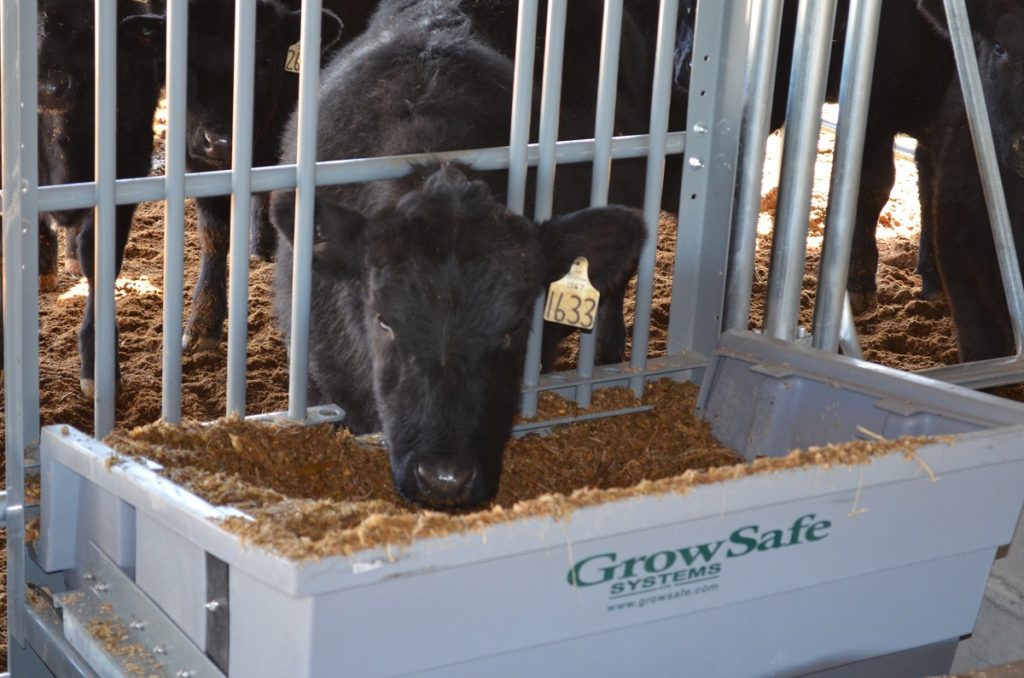
Associate Professor Phillip Myer and Team Look to Feeding Factors to Improve Beef Production
KNOXVILLE, Tenn. – Maximizing muscle growth and genetics help beef cattle producers grow quality products in an economical way, and now researchers with the University of Tennessee Institute of Agriculture are seeking to understand how feed efficiency could further enhance beef production.
Phillip Myer, associate professor of animal science, is leading a team funded by the Tennessee Beef Promotion Board that aims to share the findings with beef cattle producers to help them make the industry more sustainable and economical. With help from the UTIA Genomics Center, Myer is joined by his colleagues in the Department of Animal Science: Jon Beever, professor and director; Brynn Voy, professor and UT-Oak Ridge Innovation Institute education director; Troy Rowan, assistant professor; and master’s student Sophia Ascolese. Myer, also a Smith Global Leadership Fellow, specializes in rumen microbiology and diet and microbiota that affect the gastrointestinal tract of beef cattle and other ruminants.

Feed efficiency is a critical factor in sustainability. In beef cattle, feed efficiency measures an animal’s efficiency in converting feed nutrients into increased body mass. Animals with greater feed efficiency use fewer resources to produce muscle, which is the primary economic product in beef cattle operations. Although much is known regarding muscle development and host genetics, Myer says there is little information about how feed efficiency interacts with the regulation of genes controlling muscle development. Results from this project may lead to the breeding of more efficient animals.
“This project provides an opportunity to improve muscle development through genetics while meeting the needs of food production, sustainability and economic value for producers,” Myer says. “This project also has the ability to further define and integrate other factors impacting feed efficiency in beef cattle, such as the rumen microbiome and animal genetics.”
The project, titled “Interconnecting Feed Efficiency with Mechanisms of Muscle Growth,” is being conducted at the Plateau AgResearch and Education Center in Crossville. Research started this past spring and will continue through March 2024, taking advantage of an ongoing multi-year study into the determinants of feed efficiency in beef cattle using a sample of up to 400 cattle. Researchers expect to identify key genes involved in muscle growth.
Results of the study will be delivered to producers through UT Extension, Advanced Master Beef programs, UTIA field days and beyond.
Through its land-grant mission of research, teaching and extension, the University of Tennessee Institute of Agriculture touches lives and provides Real. Life. Solutions. utia.tennessee.edu.